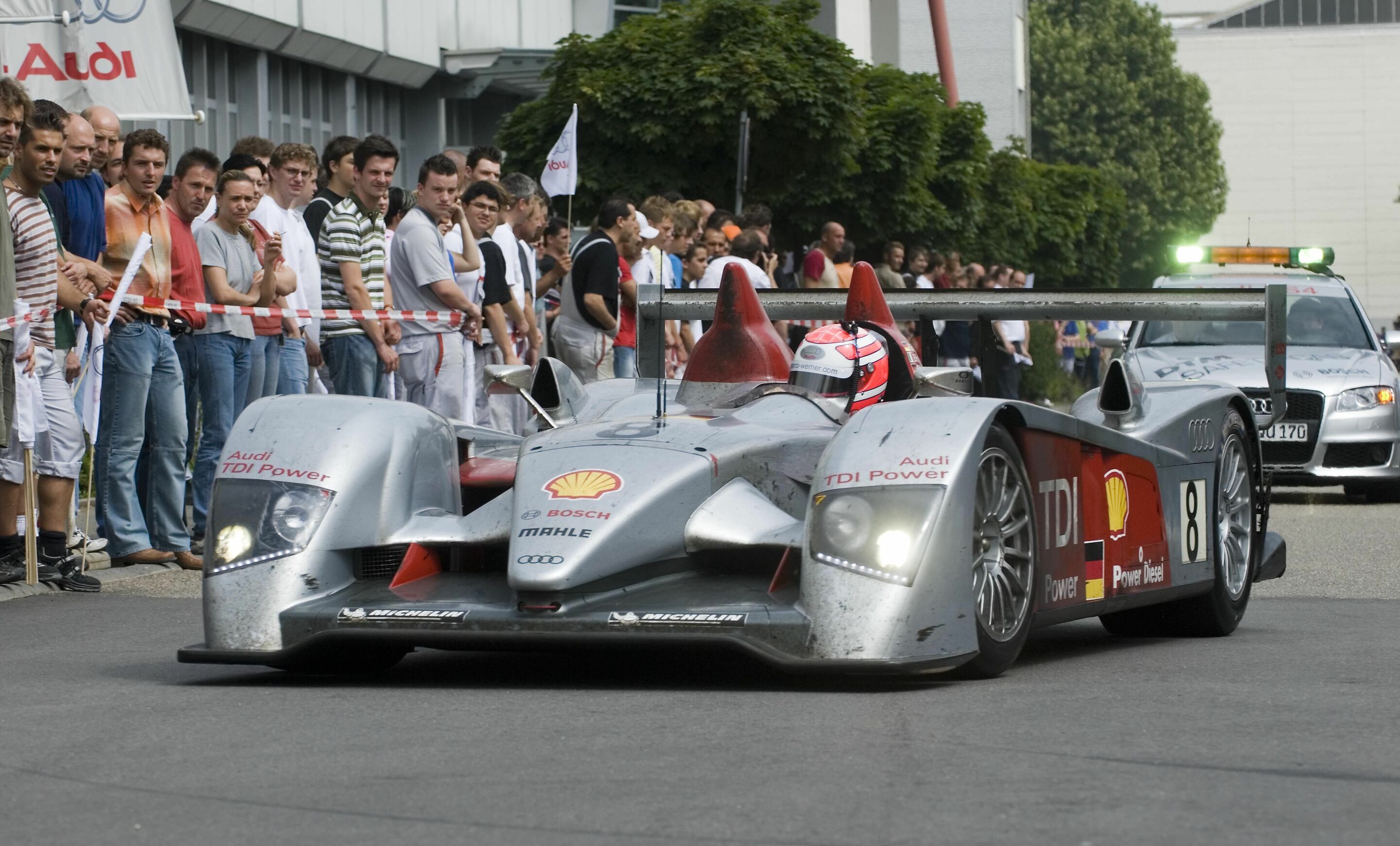Le Mans win accelerates TDI development
- 95 sensors gather data in Audi R10 TDI
- Transfer between motorsport and production technology
- Audi R10 TDI makes demo laps at Neckarsulm factory
Audi celebrated the historical first triumph of a Diesel engine at the 24 Hours of Le Mans by making several demonstration laps at the Neckarsulm factory. Marco Werner, who won the French endurance classic together with Frank Biela and Emanuele Pirro last weekend, was at the controls of the winning Audi R10 TDI.
Thousands of Audi employees cheered Marco Werner as he reeled off the laps around the factory grounds. Several of the employees were either directly or indirectly involved on the success of the Audi R10 TDI in Le Mans. The V12 TDI engine, which produces more than 650 hp, was created at Audi Sport in the Sport and Special Engine Department which is located at the factory in Neckarsulm.
“The direct link between Audi Sport and the AUDI AG Technical Development (TE) is one reason why we are so successful in motorsport”, explains der Head of Audi Motorsport Dr. Wolfgang Ullrich. “We are able to resource completely the know-how and test rigs of our colleagues in the road car development. This made it possible for us to implement the advantages from Audi’s production technology into the first Audi TDI race engine at the 24 Hours of Le Mans, the world’s toughest car race – and all this in the shortest possible time frame.”
At Audi, the transfer between motorsport and production technology also functions in the opposite direction. The Le Mans engine’s crankcase is manufactured from aluminium – a design that could well be seen in mass production in the future at Audi. The race engine’s fuel injection pressure lies well over the 1,600 bar that is currently achieved in production engines. The combustion pressures also reach values previously never before seen in any Audi engine.
Dr. Wolfgang Ullrich is convinced that, “This engine will form the base from which the next generation of Audi TDI engines will do everything a little better than they do already today.” “For Audi, motorsport is more than a simple marketing instrument. The technology transfer between motorsport and production is very important to us. Last weekend’s Le Mans race is the latest proof.”
With the R10 TDI, Audi also demonstrates just how economical a powerful engine can be. The race winning car in Le Mans consumed a mere 40.34 litres per 100 kilometres – an extremely low figure for a racing engine producing more than 650 hp, especially as the percentage of full-throttle during a lap around Le Mans is 75 per cent. To compare: The Audi R8 with its equally economical TFSI engine used almost 5 litres more per 100 kilometres on its way to winning under similar conditions in 2002.
“With regard to consumption, environmental friendliness, the combustion process and other new technologies we expect an enormous step forward in the forthcoming years”, says Ulrich Baretzky, Head of Engine Technology at Audi Sport. “We expect to see things that we developed specifically with racing in mind appear later in production.”
To collect as much know-how as possible the two Audi R10 TDI prototypes in Le Mans were equipped with a total of 95 sensors, which constantly transmitted suspension and engine related data to the pits via radio telemetry. Every time the car crossed the start and finish line the high-resolution data from the previous lap was transferred by WLAN via a so-called “Burst-System”.
The abundance of data will help the Audi Sport technicians to further develop the engine, and supply their colleagues from the production development knowledge from which the Audi customer will benefit in the end.
